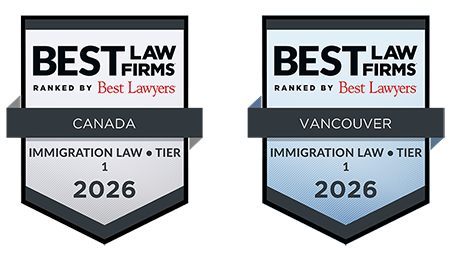Since the introduction of Canada’s Express Entry selection system for skilled workers immigrating to Canada, it is necessary for a prospective applicant to register an online profile including such information as their ECA, an approved language test such as a CELPIP, IELTS or TEF, which sets out your CLB scores, and a reference letter from your previous employers confirming your work experience in accordance with the NOC code for your job description. Based upon this information you will receive a CRS score and if your score is high enough you will receive an ITA for permanent residence to Canada.
If you are perplexed by the above “alphabet soup” of a description for Canada’s Express Entry system of immigration to Canada, then you are not alone. As Vancouver immigration lawyers we have witnessed how Express Entry (introduced on January 1, 2015) has completely transformed the way that individuals can become permanent residents. In order to navigate this new system, you need to become familiar with the terminology.
The starting point for submitting an Express Entry profile is to have three things: confirmation of your foreign education, an approved language test, and a detailed reference letter confirming your foreign and/or Canadian work experience. Let’s examine each of these things individually.
To confirm that your foreign education is equivalent to a Canadian diploma or degree, you will need to get an Educational Credential Assessment (ECA).
To confirm your language proficiency in English or French you will need to have an approved language test. For English you will need to have a CELPIP test or an IELTS test. For French you need to obtain a TEF result. Your IELTS and TEF test results will need to be converted to the Canadian Language Benchmark (CLB) standards in order to be able to determine the points that you will score for each of the four language proficiencies: reading, writing, speaking and listening.
To confirm your previous work experience you will need to have a reference letter from your previous employers for up to the past ten years which confirms your job description and duties in accordance with the National Occupational Classification (NOC). The NOC classification system sets out the minimum educational requirements and specific duties for each job description and your reference letters need to confirm that you have performed a majority of the duties as described in the NOC description for your occupation. In addition, your reference letter must confirm the duration of your employment, that it was full time and the number of hours per week that you have worked while employed. Please see our previous blog from May 8, 2018 “Immigration Essentials: Getting the Reference Letter Right.”
Once your profile is registered under the Express Entry system with this information, you will receive a Comprehensive Ranking Score (CRS) setting out the points that you have earned for your qualifications. Depending upon your CRS score, you may be given an Invitation to Apply (ITA). Without an ITA you cannot apply for permanent residence. Express Entry draws for 2018 have provided ITAs for CRS scores in the range of 440 to 460 CRS points.
Navigating Canada’s Express Entry immigration selection system requires learning all the relevant terminology. Fortunately, these terms and processes are all set out on the Immigration Refugees and Citizenship Canada (IRCC) website. You will want to familiarize yourself with the various steps of the process in order to maximize your chances of qualifying for permanent residence to Canada.





